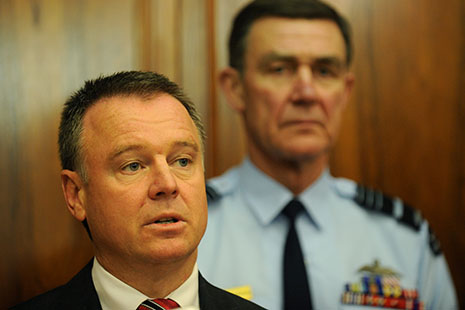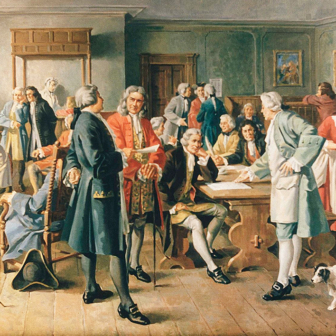DEFENCE AND FOREIGN AFFAIRS are two of the glamour portfolios in politics and public administration, and are always highly sought after. Both are seen by politicians – in government as well as opposition, but especially in government – as “safe” portfolios, with their big and largely quarantined budgets and endless opportunities for “feel good” announcements, just far enough removed from the swirling vicissitudes of all matters economic.
Yet each carries a potential pitfall that can, and does, stymie any prospect for career advancement. They are, more often than not, political graveyards.
Defence is a prime example. Joel Fitzgibbon is a likeable sort of bloke, but that might be a decided disadvantage in dealing with the military, imbued with a culture all its own and speaking only the language of bastardry. The military does things its own way – always has and always will, no matter what lip service is paid to the civilian overlords, department secretaries and ministers alike, who are thoroughly despised if only for the fact that they are civilians.
Inquiry after inquiry, review after review, has spoken of the urgent need for cultural change on issues ranging from bullying, bastardisation and sexual harassment to basic accountability and financial responsibility. But in the end little changes, and the spirit that overthrew Governor Bligh in Australia’s sole military coup still prevails.
A fundamental test of the state of democracy in a country is the extent to which the military is under civilian control, and this vital fact is widely recognised and has long been accepted in Australia. The Defence Act stipulates that the defence minister “shall have the general control and administration of the Defence Force” and that “the Chief of the Defence Force must comply with any direction that the Minister gives from time to time as to the way in which the Defence Force is to be utilised.” The Constitution forbids serving military personnel, as it does public servants, from standing for election to parliament. Members of the armed services are subject to the same laws as other Australians, and the armed services do not openly challenge the authority of civilian rule.
But there is always a nagging question about just how effective this control really is. The military has a stunning record in getting its own way – certainly in terms of the big toys it wants. Objections are quickly swept aside once the military digs in, and future governments (not to mention hapless taxpayers) are left to pick up the inevitable costly pieces of massive cost over-runs and interminable delays.
It was only seven years ago that the Howard government was forced to concede that military budgeting was an oxymoron: between them, sixteen major capital projects at Defence had gone a whopping $5.1 billion over budget, and in some cases were years behind schedule. The Collins submarines and the Sea Sprites project are just two of the outstanding examples.
Attention turned to procurement – always a problem area in Defence – and the resulting flak cost the department secretary, Allan Hawke, his job. It was not helped by a rapidly deteriorating relationship with his minister, Robert Hill, as Hawke became the fall guy for military intransigence and incompetence. (Specifically, Hawke was accused of having failed to implement procurement reforms. He introduced them, but they were avidly resisted.)
Hawke’s messy departure followed that of his predecessor, Paul Barratt, who was summarily dismissed by his minister, John Moore, after a total breakdown in their relationship. Barratt embarked on legal proceedings, which embarrassed the government; Moore retired in deserved obscurity; and the military behemoth, safe in its inviolable culture, rolled on unscathed and unbowed.
The point is that the military can make a minister – and a secretary – look silly. And it doesn’t care. Brendan Nelson, as defence minister, was made to look even sillier than he was over the bungled return of Jake Kovco’s body. In the past few days, a struggling Joel Fitzgibbon has had helpless anguish writ all over his ministerial face in the wake of the SAS pay bungle. Hands are wrung, apologies are made and defence chiefs appear on television and promise change. But the one certainty out of all this is that poor Joel won’t be going anywhere higher.
And this brings us to foreign affairs, which is a political parking spot all of its own. It is unquestionably important in government, and generally enjoys far more autonomy than any other job, simply for the fact that everyone else is too busy to take more than a passing interest in foreign affairs. Stephen Smith, the current incumbent, is quietly competent; there are no real issues.
Two of the recent occupants of the job – both long serving – were Labor’s Bill Hayden in the 1980s and Alexander Downer for the entire duration of the Howard government. Each had a stranglehold on the position and each had a very similar reason for wanting it. They were deposed leaders and demanded a protected sanctuary as their price for going quietly – Hayden making way for Bob Hawke and Downer stepping aside for John Howard. It afforded each a position of prestige, but also removed them from the domestic hurly-burly of political conflict.
This is precisely what makes Julie Bishop’s decision last week to relinquish her shadow treasury hat for that of foreign affairs so strange. Despite having proved herself incompetent in the key economic portfolio, she has clung onto the deputy’s post yet taken a job a long way from the political frontline. Unless there is a scandal in the air – as there was with AWB, and Kevin Rudd as a competent foreign affairs shadow got a televised free kick nightly – the job guarantees virtual invisibility as well as irrelevance for the electorate. Is this really what the Liberals want for a deputy leader? •




